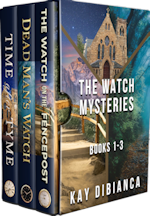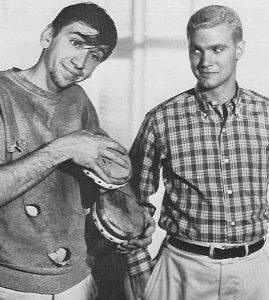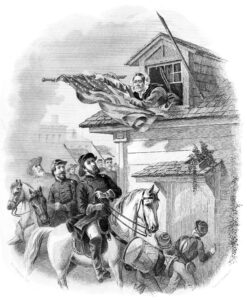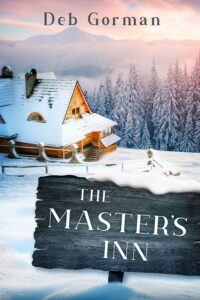by James Scott Bell
@jamesscottbell
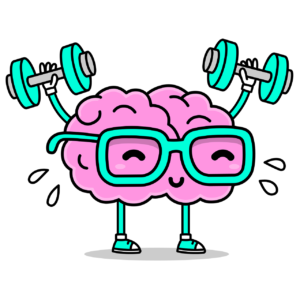 I’ve often thought of the imagination as a muscle. With proper care and exercise, it gets stronger. Leave it alone, and it atrophies.
I’ve often thought of the imagination as a muscle. With proper care and exercise, it gets stronger. Leave it alone, and it atrophies.
For fiction writers, the imagination is our stock-in-trade. The healthier it is, the more likely the production of fresh, original writing.
One of the best exercises for the imagination is the “What if” game. Through daily practice you train yourself to ask “What if X?” in response to the stimuli—usually visual—that come your way in an ordinary day.
You’re driving and come to a stoplight. What appears to be an elderly woman pushing a shopping cart stuffed with belongings enters the crosswalk. Are things just as they appear? Probably. But not to your creative mind! So you ask:
What if there’s a bomb in that shopping cart?
What if the lady is the heiress of a large fortune, but went insane? Or was driven insane?
What if it is really a man in disguise and he’s on the down low because a contract has been put out on him?
The light turns green and off you go, letting the ideas simmer in your brain.
You pass a billboard of a happy family—smiling dad and mom, two laughing kids—at a theme park. Happy to most people, maybe. But:
What if Dad is a hit man on the side?
What if Mom is the assassin-for-hire?
What if one of the kids is an alien?
Two minutes have gone by and you already have six or seven ideas.
If you’re diligent about this exercise, your imagination muscle will churn all the time, often without conscious thought. Then the issue won’t be, Where do I find my next idea? but, How do I choose from all the great ideas my imagination has already provided?
As I look back at my own books, I think I can safely say that most of the ideas sprang from a What if conjecture. Sometimes that was the product of just sitting down and telling myself to come up with something. Several times it was me riffing off some odd news item.
Like an L.A. story that haunted me for a few years. A man shot his wife, drove to a freeway overpass, got out of his car and shot himself. He fell 100 feet onto the freeway below. His body smashed into a car, killing the driver, a woman.
I clipped the story from the newspaper and put it in my “idea box,” where I kept all sorts of clippings. Every now and then I’d look through the box to see what still interested me. This incident always did. Finally one day I asked myself, What if the woman in the car was my protagonist’s fiancé? I sat down and wrote an opening, in First Person POV, that ended with this:
This would have been simply another dark and strange coincidence, the sort of thing that shows up for a two-minute report on the local news—with live remote from the scene—and maybe gets a follow-up the next day. Eventually the story would go away, fading from the city’s collective memory.
But the story did not go away. Not for me. Because Jacqueline Dwyer was the woman I was going to marry.
Try Dying took off from there.
Here’s another one.
Years ago I got an email out of the blue from a fellow I knew in high school. It had been nearly thirty years since we’d communicated, and even back then he wasn’t a close friend. He said he’d found my website and saw I was a writer and thought it would be good to get together, and could he buy me coffee?
Unfair as it may have been, my immediate thoughts were: a) he has always “dreamed of” being a writer, and thinks I can help him; b) he has written a novel and can I help him find an agent?; or c) he’d like to tell me about Herbalife. My What if muscle was flexing, and went to: What if this guy wanted to do something to me? Or to my family? And why?
We spent a perfectly harmonious hour together, and that was that. Or so I thought.
It just so happened that about this time I re-read one of my favorite John D. MacDonald novels, The Executioners (basis for the Cape Fear movies, the original with Gregory Peck and Robert Mitchum being the best). Talk about a spiral of suspense!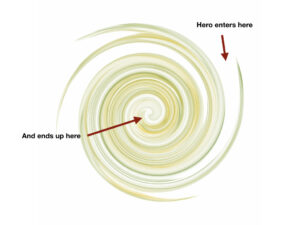
That’s when I knew I had my next novel. I wanted that spiral! My novel would be about a guy from the past who contacted my family-man protagonist for a friendly get together, but then…
The book was published by Zondervan and hit the CBA bestseller list. Now it’s back in indie iteration as Can’t Stop Me. What if it launches today at a special deal price? We shall see!
So are you intentional about asking What if? What do you do to work out your imagination muscle? How to you decide what book you want to write next?













